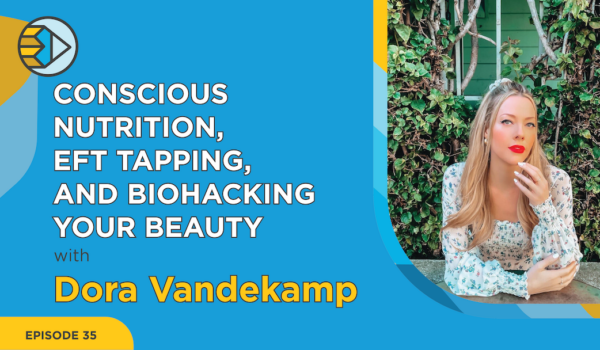
EP 21: Most Commonly Used Academic Words & Expanding Your English Vocabulary
Are you looking to increase your academic or English vocabulary? This week on the Homework Help Show our Host and Top Writer Cath Anne kicks off a series in which she discusses the most commonly used academic words. Follow along so that you can increase your academic comprehension and incorporate some new words into your academic writing! Using the words, Cath Anne discusses how to create your own sentences and you can leave them in the comments below! We would love to hear from you.
Looking for study tips, help with essay writing, or advice on how to be a better student? Welcome to The Homework Help Show, a weekly show where we teach, assist, and offer valuable insights for student life. From study hacks to writing tips, discussions about student mental health to step-by-step guides on academic writing and how to write a resume, we’ve got you covered. Want your questions answered? Write them below or join the conversation on social media using the hashtag #askHHG
TRANSCRIPT:
Cath Anne: [00:00:05] What’s going on guys? This is Cath Anne, weekly host of “The Homework Help Show” and Top Writer at Homework Help Global.
Cath Anne: [00:00:12] This week we are going to discuss five common words used in academia and how to improve your academic vocabulary. This will actually be a series of videos in which I introduce you to 50 academic words and how you can incorporate them into your academic and English vocabulary. I didn’t want to bombard you at first so we’re going to start off with 5 and then move on from there in the future videos.
Cath Anne: [00:00:41] Before I get started I wanted to remind you that we do have a weekly live stream happening every week, Thursday at 7:00p.m. Eastern Standard Time. We’re going to be doing it on Instagram and Facebook Live. It’s actually going to be a Q and A and also a chance for you guys to bring your homework or anything that you’re working on anything that you want to discuss. We will try to answer your questions the best we can. So again every Thursday, join us live 7:00p.m. Eastern Standard Time on Instagram live or Facebook Live. You can just look up Homework Help Global and we should be there. Add us on Instagram under Homework Help Global, follow along, and ask your questions.
Cath Anne: [00:01:25] It’s also a great opportunity for you to incorporate some of the knowledge that you learned in these videos into your communication through Instagram and ask any questions that you do have about the videos at that time.
Cath Anne: [00:01:40] OK so let’s jump into the content for this week.
Cath Anne: [00:01:45] In this lesson, as I mentioned, I’m going to be discussing five academic words which are very important. If you are a university or college student or if you are intending to go to university it can also help you on standardized testing. If you are taking an ESL class or if you are studying to be a teacher who is teaching English as a Second Language these words can definitely help. The subsequent vocabulary lessons will also help you as well. So all these words came from a very common list of words that I just Googled. It is the top words that are used in the academic world and in the English language in academia. So I just wanted to let you know that there is information out there if you’re looking to do some more research on your own about academic vocabulary. In this segment I will discuss the word. So I wanted to make sure that you guys were familiar with the words. I’m also going to discuss the part of speech, so whether it was a pronoun, an adjective, or a noun. I think today we only have nouns and adjectives but in the future we may have other of parts of speech.
Cath Anne: [00:03:20] I will discuss the word, the part of speech, and also the meaning and then we will also put the word into a sentence so that you can understand it in context. That is very important particularly to get the meaning of something, but also to retain the information and memorize the words.
Cath Anne: [00:03:38] Let’s begin. The first word that we’re going to discuss is alternative. Alternative is most commonly used as a noun. This means an additional choice a possible remaining choice. Used in a sentence: ‘She wanted to explore the alternative.’ In other words she wanted to explore the additional choice. You could also say: “The alternative was to take Joe’s car.” In other words taking Joe’s car was the additional choice. It wasn’t the first choice but it was the alternative.
Cath Anne: [00:04:30] OK.
Cath Anne: [00:04:32] Number two is the word assessment. You may be familiar with the word assessment because it is also related to test. That’s exactly what it means. Assessment, in this case is a noun. Assessment is an evaluation of something. We don’t often like to be scrutinized or be tested. You may be familiar with the word because you might hear it in school. Someone wants to do an evaluation of you and they give you a test, that is an assessment. Most of us don’t like assessment’s but this is what the word means. Used in a sentence you could say: “They wanted to do an assessment on the property.” So in other words, maybe the insurance company wanted to come to the property, have their list and check off their boxes to do an assessment of the property and make sure that everything is in line before the next people buy the house. That is assessment.
Cath Anne: [00:05:42] So number three is benefit. Benefit is a noun. Benefit means something that is advantageous. We can use it in a sentence and say: “He gained many benefits from the work at the store.” One of the benefits might be that he gets a discount on his groceries or maybe he gets a discount on his gas. That is a benefit. That is a positive beneficial situation. Who doesn’t want to save money? That is the word benefit, another great word to incorporate into your academic writing.
Cath Anne: [00:06:38] Number four word is one of my favorite words to use in academic writing: the word complex. This is actually an adjective. We’ve discussed all nouns so far. Complex is an adjective. I should have noted before. There are some words that might sound the same or that might have a different meaning. So for example instead of saying complex we can also say, complex, which is spelled the same, but it actually means something different. So in this case we’re discussing the word complex where as the word complex would refer to an apartment building or a large building like a gym complex for example. In this case we are talking about the adjective complex. So if something is complex it means that it has many different interconnected parts that are unique. They are all twisted and tied together and they may be difficult to understand. So for example you could describe something as: “a complex situation or a complex problem.” You might also say that something is a “complex issue.” So for example: “In the United States race relations are a complex issue.” These are some words that complex is used to describe: problem, issue, situation. They can all be complex. We could also use it as a sentence: “The professor explained the complex topic”, so that implies that the topic that was being discussed is complicated. It’s a little bit difficult to understand but the professor explained it. If you are studying neuroscience it is likely that you will encounter several complex topics. There are many other disciplines that involve complex topics as well.
Cath Anne: [00:08:48] Our number five word for this week is a concept. A concept is an idea. It’s something that you form in your mind. So say you are thinking about something new, you’re learning a new topic. You might think about it differently and come up with a new concept to try and explain that idea or show people. So for example, when the light bulb was invented that was a new concept. Let’s use it in a sentence, “Traveling to Mars is an interesting concept.” This means traveling to Mars is an interesting idea. It’s an interesting thought. We may not know all the details about how we do it or why we want to do it but it is an interesting concept to consider. It is something new and different that maybe we hadn’t considered before.
Cath Anne: [00:09:42] All of the above words are helpful to incorporate into your academic writing. We have the word alternative, we have the word assessment. We have the word benefit, we have the word complex, and we have the word concept. They are all great words to incorporate into your writing.
Cath Anne: [00:10:05] Now I want to discuss how to improve your vocabulary. I wanted to discuss one quick tip that can help you to effectively build your vocabulary if you are finding it is somewhat limited and you were just beginning in the academic field. You can certainly learn words but it is more effective to learn phrases. So when we just memorize words it can be difficult to retain that information because we’re not putting it into context. So this is why I provided you with some ideas, some thoughts, and some sentences related to each word that we discussed. If you are hoping to remember some of the words we discuss today right now try to incorporate them into sentences and then share the sentences below in the comments. This will help you to retain some of the information that we have discussed. So choose one of these. It would be great if you guys could share in the comments a sentence you come up with in relation to one of the words we have discussed today.
Cath Anne: [00:11:06] I forgot to write complex and concepts here as well.
Cath Anne: [00:11:15] We love when you guys engage you so please take some time to think about the sentence and it will also help you to remember these words that we talked about. Try more than one sentence if you like!
Cath Anne: [00:11:28] So that does it for me this week.
Cath Anne: [00:11:30] I’m hoping that this series will be really valuable to you. We’re going to talk about fifty different words. I think that next time we might do 10 in one session. But I didn’t want to do too many today just to get this segment rolling. I decided to start with 5.
Cath Anne: [00:11:48] If you did enjoy this video and you think it will be valuable content please give this video a like and a thumbs up and follow us along on Instagram and Facebook and please SUBSCRIBE TO OUR YOUTUBE CHANNEL.
Cath Anne: [00:12:01] We always love to hear from you. So DM us on Instagram, message us in the comments below. I can’t wait to read your sentences and that’s it for this week. If this was of benefit to you and if you want to gain access to any more of our content, we are on Facebook, Twitter, LinkedIn, Instagram, Google Plus, YouTube, Medium and now are also on SoundCloud, Anchor, iTunes Apple podcasts, and Google Play Music. Just search Homework Help Global and we will be there. That’s it for me this week. My name’s Cath Anne and I will talk to you soon.
Share:

